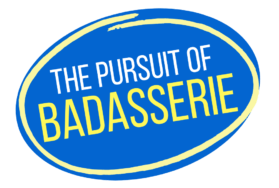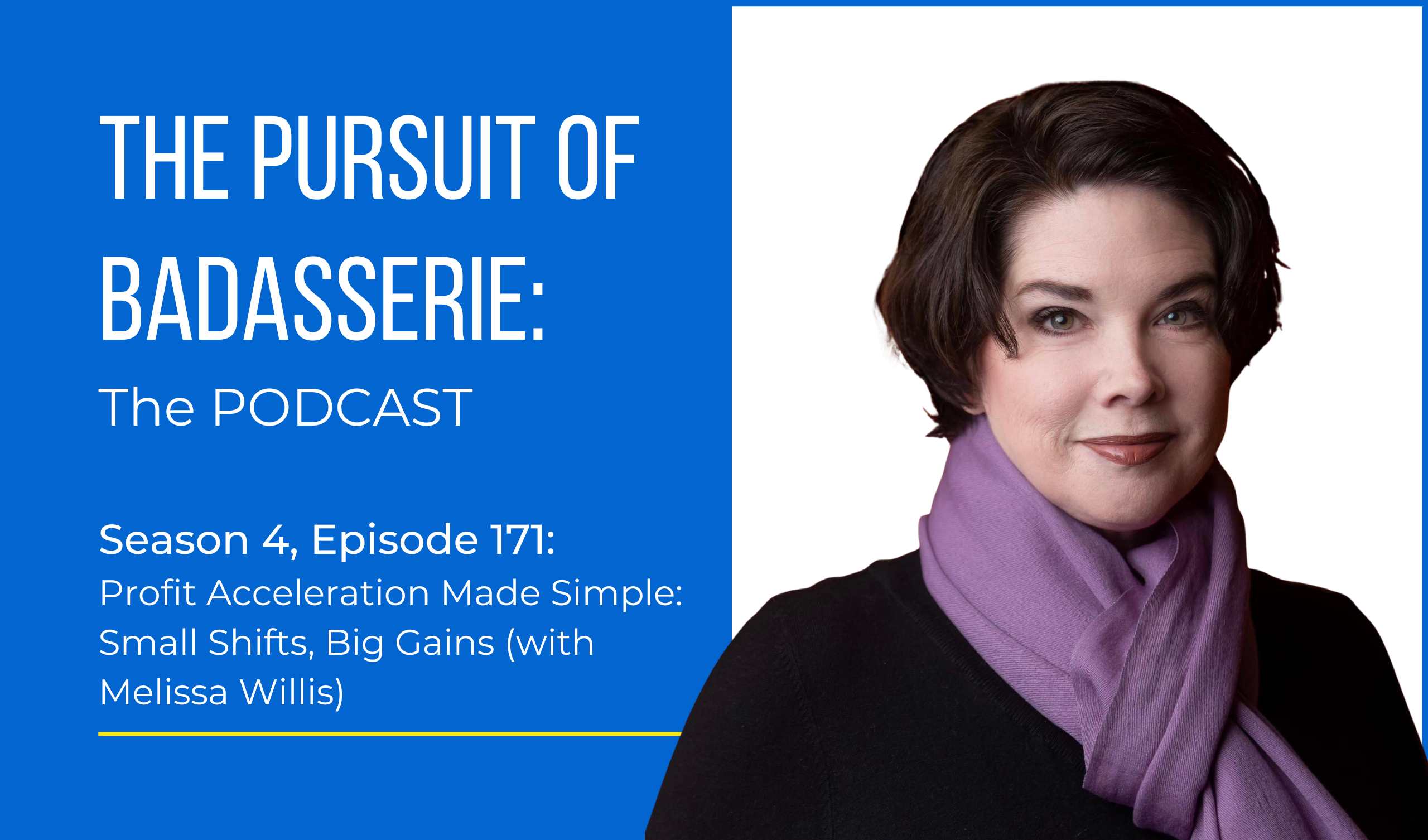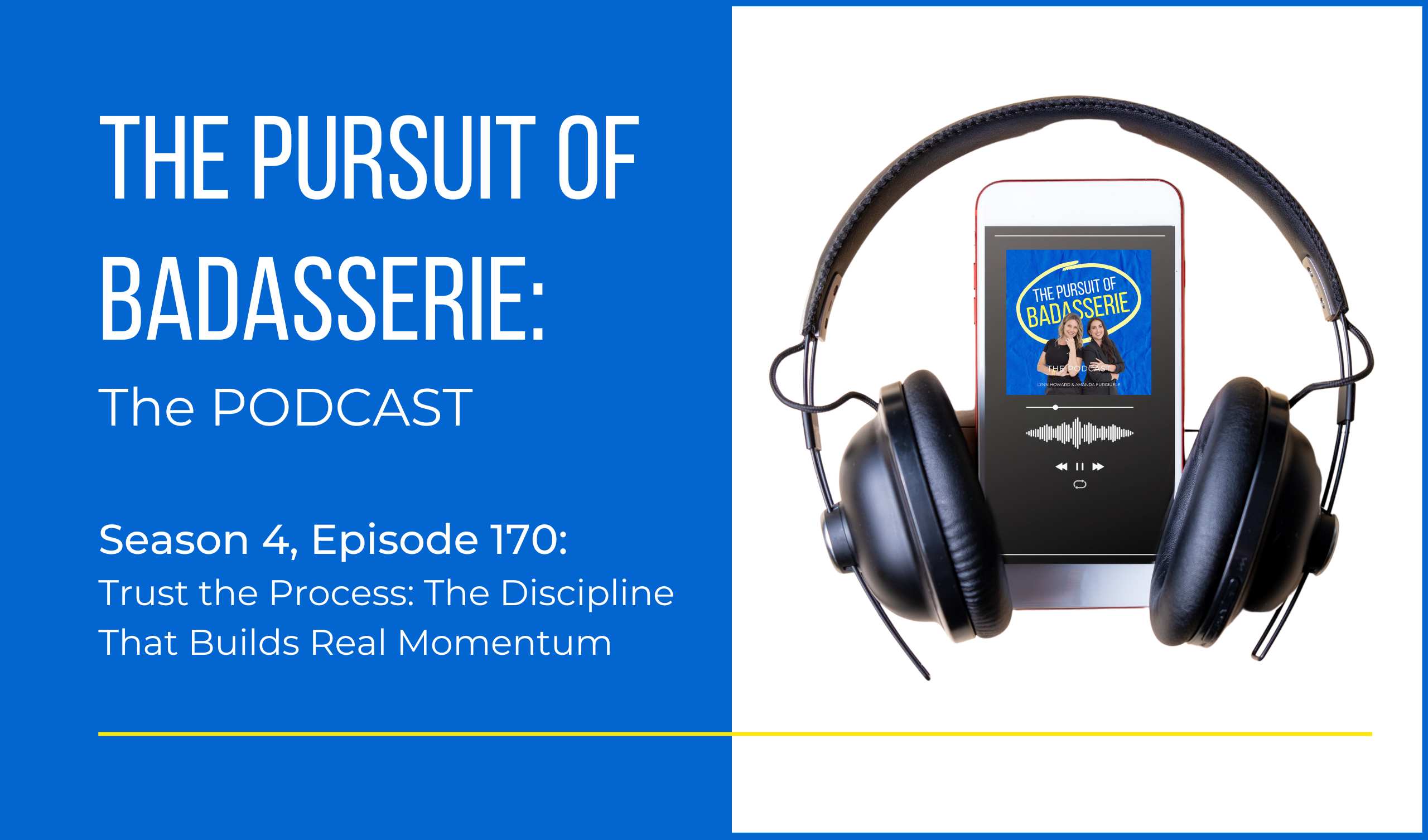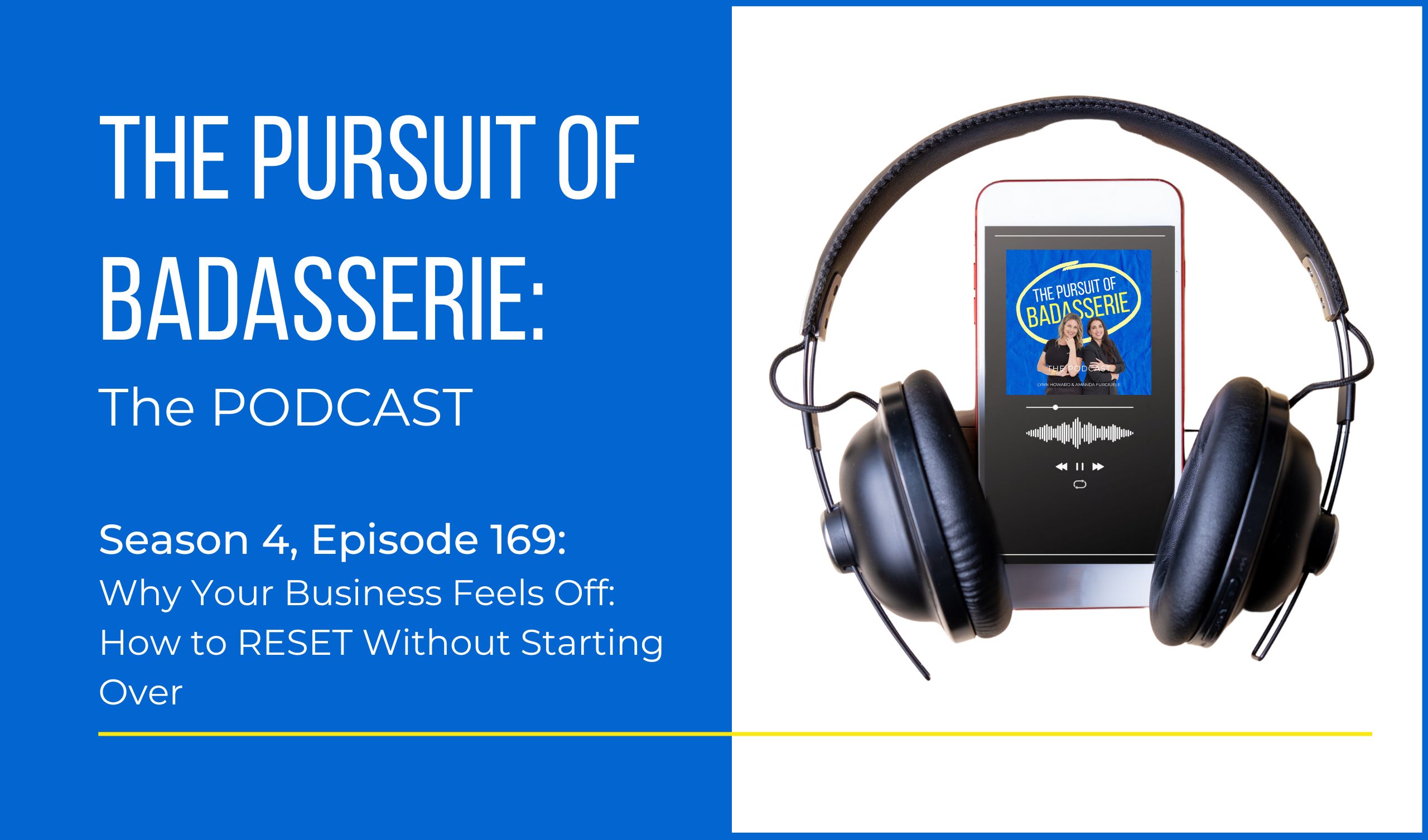Episode 154: Collaboration vs Competition
Are you torn between competing and collaborating in your business? In this episode, we dive into the reality of healthy competition versus scarcity mindset competition—and how the right collaborative strategies can actually grow your impact, rather than diminish your edge.
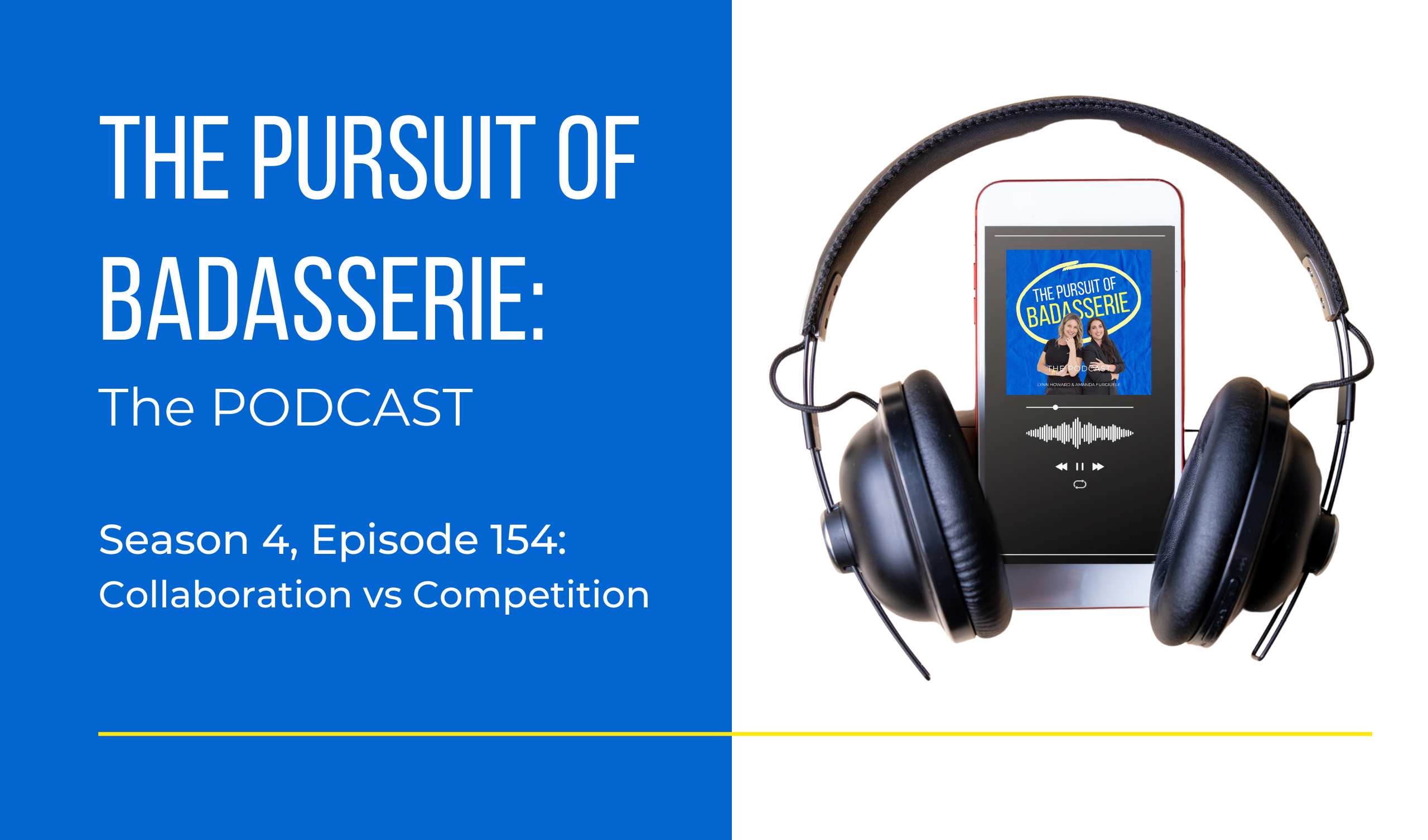
What you’ll learn in this episode:
- How to shift your mindset from “either/or” to “both/and” when it comes to competition and collaboration.
- Practical ways to collaborate: cross-promotions, referral systems, joint offers, and packages.
- Why collaboration doesn’t always have to involve payment—it’s about building trust and community.
- How to protect your brand and reputation while engaging in collaborative work.
- The concept of “co-opetition”: keeping your competitive edge while creating value through collaboration.
- Real-life examples of successful collaboration that lifted entire communities and businesses.
Key takeaway: Healthy competition keeps you sharp, but collaboration can multiply your impact. The goal isn’t to eliminate competition—it’s to leverage relationships, trust, and joint opportunities to grow your business and help others thrive.
Tune in to discover how you can embrace both competition and collaboration to create more value for your clients—and for your business.
Make sure to subscribe to our YouTube or Spotify and leave us a review!
- Like the show? LEAVE US A REVIEW wherever you listen!
- Have a question? CONTACT US at info@thepursuitofbadasserie.com!
Want to sponsor us? Find out how HERE.
…
Read the full transcript of this episode below:
Lynn Howard
Hey, this is Lynn.
Amanda
And I’m Amanda. Welcome to the Pursuit of Badasserie, the podcast. Today, we’re going to talk a little bit about competition versus collaboration, what that looks like in your business and why you might go one way or the other deciding on what you’re going to be doing.
Lynn Howard
Yeah, yeah. Actually, I like that you open it up that way, that depending, going one way or the other, because it’s not always one way or the other, but you can be more one over the other.
And I can’t help but to think, had this conversation this morning, too, on a training about usually, usually people that stick completely in competitive mode versus collab mode tend to have more of a scarcity kind of mindset that there’s not enough to go.
And I am generalizing, but the conversation I had this morning, it’s interesting because of how the scarcity mindset can kind of show itself, but the whole, like, even having the projections that we do to kind of be standoffish of having collaborativeness over competition and the undercurrents.
Of the competition kind of feeling as well. It’s kind of wild.
Amanda
Yeah, I think of it as, it’s kind of like the three C’s. It’s like comparison, competition, and then collaboration, and how that looks to you can be very different.
And the effect it has on you is very different because if you’re in that scarcity mindset, I mean, particularly when I think about competition, for example, scarcity mindset will make you feel like there’s not enough to go around.
talking about, but If you’re in a healthy space of competition, I mean, thinking of like sports, for example, like if you, if it’s part of the game is to compete, there is a bit of, there’s a positive side to that too, but you have to come at it from this, this mindset of abundance, because if you’re sitting in the scarcity of there’s only one winner, rather than we’re competing, but the ultimate goal is more like the enjoyment or like, what’s the actual goal, the outcome that you’re looking for?
There’s, it’s a different way to look at things. And I think that I’ve noticed in a couple of different clients that if they’re living mostly in an abundance mindset, they might compare things like, oh, it’s interesting that they’re doing this and they’re technically competitors, but they still have that abundance mindset and they’re still open to collaborating versus another company that might constantly look at what you’re doing.
They’re comparing your prices, they’re comparing what you’re offering, and then they’re competing to see who can win at the sales gig or at that marketing thing.
And then they move on to, they won’t collaborate with you. You’ll be They see you as this constant, I need to be better than you.
It’s competition. I always find it rubs me the wrong way when they’re never willing to collaborate on anything. How can you grow your business if you’re not going to open yourself up to collaborations in some capacity?
Even a major corporation will collaborate with an actor. There’s all sorts of ways that you collaborate that it doesn’t have to be always in a scarcity mindset.
But it’s interesting to see how the mindset of the person who’s in that space can absolutely change, whether that’s a positive competition in comparison or a negative.
Lynn Howard
I love that you use sports as an analogy for this because it is true. And what I was thinking of is like, yeah, you could be the star player on the basketball team or on the footy team or whatever, but there are people around you.
And you might be a solopreneur, so maybe you don’t have other people. A couple of things. When you go a business in a competition set, it’s like you against the world.
And so it’s always going to feel that way. Like you’re going to be, you’re capping yourself at capacity, at growth, at many different things, at exposure, and it’s just a hard battle, right?
Because you feel like you have to win. And thing is, is, and I know this is an abundance thing, there’s enough to go around and we’re not everybody’s cup of tea.
And at the end of the day, like working together, and we’ll get into like the benefits, I guess, of being collaborative, but that having that competition, which I love competition, I’m, we’re both competitive.
Um, but like you said, there’s a healthy way to have it and know. I think it’s like coming from the abundance standpoint of view and also looking at what’s best for the individual and comparison.
I mean, in business, we should be evaluating and analyzing, which could be a type of comparison, but it’s what you do with it.
I think it’s the root in which you’re coming from and how you do it because it could feel very, very icky versus, okay, so this is what I have.
This is what’s working for them. Like, I’m not going to base my next steps solely based on what they’re doing.
I need to do it based on what I’m doing, right? So we can constantly take ourselves out of our shoes if we’re out of our shoes.
Also, we’re leaning into the comparative side when we’re in competition. I love your three C’s, so having that competitive attitude and energy is great, but if you’re viewing everybody,
And everything is competition in a negative way and not looking at the whole and, and seeing that you are a sum of all of the parts and all of your community versus just you siloed.
Yeah, it’s, you’re just setting yourself up for just .
Amanda
I mean, yeah, you can’t, you can’t scale there. And I, we love a good competition. I mean, I think one of my favorite competitions I’ve seen recently is when like restaurants have sign wars where they are like competing.
I think you can use that because that’s almost collaborative in the way they’re competing. And that kind of competition is great because like no restaurant is really, I mean, they’re all competing because a restaurant competes against a restaurant regardless, but they’re using it in the spirit of like frivolity and, and, and.
Lynn Howard
I love those jovial nature to it.
Amanda
That’s so much fun. If you, if you’ve never looked at sign wars or like any of the sign competitions, they always crack me up.
So Thanks . We’ll But really, when it comes down to your business, the real competition isn’t the person who’s selling something similar to you, it’s the inaction that you’re putting in, you’re competing against the inaction, you’re competing against poor customer experience, you’re competing against things that are more important than just their business as a whole.
I mean, you said it yourself, like the sums and some of the parts. So when I think of competition, I always want to have the idea that it’s, it is still a spirit of sort of collaboration, there’s still you’re still, because even from a sports perspective, like we’re competing, but the collaborative goal is to further the sport and to get stronger and to enjoy what you’re doing.
So like, there’s still a collaboration there. But that’s not how everybody sees competition. And I certainly have isn’t how I thought about competition.
In the olden days, it was like diehard, all or nothing, you know, race to the bottom, basically. So There are a lot of missed opportunities that you’re going to have in that competitive space.
Now, we’ve said we’re going to talk about some of the benefits of collaboration. And I think the number one that I always think about is shared resources, shared contacts.
I mean, the average person knows 150 people. So if you’re combining resources and you’re collaborating, that means now your reach is 300 people, not 150.
So access to each other’s audiences, your networks, your expertise, that’s invaluable when it comes to collaborations. And it doesn’t even need to be in a competition space.
I mean, you can have two fitness studios that are competitors working together. mean, you talk about it all the time in the security department.
Like you had another security business that was one of your biggest collaborators, even though technically they were a competitor.
Lynn Howard
Yeah. And what that did for us is it, it expanded our credibility. It also threw people at a club.
Potential prospects off of their game, because they weren’t expecting two companies to talk so highly of one another. And the thing is, is we’re not saying be collaborative with everybody.
That’s not it. It one is the mindset. And two is the process. And three is who you choose, right?
And then four is another process. Um, but yeah, absolutely. Um, you know, he, to go on that particular example, he was, he was ethical.
Um, he had values that aligned with my values. He did great work. He took great care of his customers, which was one of the values.
Um, and so us building each other, even before we met, you know, um, only enhanced my character, right. And his character, right.
It compounded our credibility, especially after we got to know. We’re actually referral sources for each other. We can bend, excuse me, borrow trust and lend it to each other, right, to amplify or edify each other.
But absolutely, absolutely. And that kind of goes down the route of more of a strategic partner, referral partner, but still having, again, I’m going to say we’re not everybody’s cup of tea.
So having a resource in your back pocket is beneficial to the end client as well, because if I’m not taking on clients or I, if I’m using myself as an example, or they’re not the right fit for me, knowing other people in the industry, and we’re talking about industry specific, but you can be collaborative with other people outside of your industry.
But knowing somebody in the industry who could take it over is only going to make that. And I that’s another thing, like, competition really can lead from being like siloed or egoed versus competition or collaboration is more of like, you know, we’re all in it.
And let’s see, you know, who can not get the biggest piece of the pie, but who can all get Have something right.
And it’s not the, like, all I keep hearing in my, my head is this isn’t the whole, everybody gets a trophy because they participated.
That drove me crazy when my kids were young. That’s not necessarily what I’m saying. I don’t believe in that necessarily.
But it is, it is looking at the whole and not just looking at thyself.
Amanda
Absolutely. And it’s also about innovation. I mean, there’s different. know, thinking Thank Getting getting new ideas, that kind of stuff won’t surface in isolation.
You’re never going to see that kind of growth in isolation. And, you know, even from the perspective, and you touched on it, just the customer value and the perceived value and the benefits that your clients can get from a more comprehensive solution.
So if it’s a collaboration where like a wellness studio and a nutritionist are getting together or a, you physical therapist and a Pilates instructor who’s going to take over after them, like there’s lots of ways that you can collaborate that bring more value to the customer and can benefit both companies pretty equally.
So, but you have to kind of think of it in that perspective rather than, well, that’s my client or they’re going to get this from me.
It’s more like, what does the client really need as a whole? And how’s that going to be? How can I serve them better by, you know, giving them that?
Because as you said, we’re not everybody’s cup of tea. And sometimes, you know, people, different reasons, season, lifetime, like they need different things.
And if you can show them the way, they’re more likely to come back to you when that recent season changes.
Lynn Howard
Absolutely. You know, I thought of like, you know, a lot of times, and I know you’ve seen this, is they might already be your client, but that person won’t refer, for example, they’re working out at your studio and they get injured.
But that person doesn’t want to offer referrals to potential, maybe not at your studio, but in general, and maybe they don’t want to offer different referrals to physical therapists or whatever, because they also have a relationship with this particular fitness studio that’s not yours or whatever.
It’s like, it’s in spite of yourself, or because you don’t have the collaborative mindset, you don’t think to offer a solution to them.
awesome. same time. I I I And I had a, I had a training with a group of realtors today.
And I think of like, you can always tell the collaborative realtors over the ones who totally view things over competition and how siloed they are and how self-serving they are versus how client serving they are and understanding the bigger picture because, you know, they are attentive.
They are, like you said, that innovation, that, that new perspective, the, the solutions before even the, the client asks for it, they’re offering it and saying, Hey, like here, here’s a list of people.
And they’re not expecting anything back from even the referrals that they’re giving and different things. And it just, I think of the African proverb, if you want to go fast, go alone.
If you want to go far, go together. And this is true when it comes with collaborating over competition. And competition the way that we’ve stated before, because healthy competition is absolutely amazing.
Amanda
I mean, competition drives excellence, but collaboration can create value. There’s all sorts of ways you can look at it, but it doesn’t have to be that way.
It doesn’t have to be a negative thing all the time. So let’s talk about some practical ways to collaborate and some of the negatives with that collaboration, because I’m thinking of one in particular that came up in one of our group calls this week.
So one of the things that’s the easiest way to collaborate is when you are co-hosting an event or doing a workshop together with another business, and you’re sharing audiences in a very organic, value-first kind of way.
Now, that’s one of the ways I use all the time. feel like that’s, I’m co-hosting events is so easy.
I every business can co-host an event. I don’t know of any business industry that can’t benefit from that kind of model.
However, the downsides of that is, is it actually a collaboration? Or is it, it’s like high school projects. Are you really doing the group project?
Lynn Howard
Or is one person doing all the work of the group project and everybody else is taking credit for it?
Amanda
So that’s one of the reasons I don’t like co-hosted or collaborative, you workshops and events is if it starts to feel like I’m back in high school and I’m doing all the work and everybody else is getting credit for my brilliance, it irks me the wrong way.
And we recently, we had a client call where similar thing. She hosted a co-hosted an event and she brought everything to the table.
She had the space, she had all the supplies, she, you know, took all the money, she advertised, she brought all the people, like, all the people were her co
And so even though it was a co-hosted event, the other host didn’t do anything. And I think that- And host got paid.
And the other host got paid. So that’s the downside is you have to set up some boundaries and you have to really, again, if it’s truly a collaboration, both sides are contributing.
You’re collaborating. You’re not, again, it’s not high school anymore.
Lynn Howard
And sharing the responsibility and sharing the costs. And obviously there’s an agreement made in the beginning part as well, and then sharing the profit.
And that’s one of the, one of the processes, right? So we said before and then after. So the before process would be make sure that you are aligned in values that you, that, that you have similar audiences or audience that you want to penetrate, right?
So there needs to be a purpose in the collaboration besides having the energy and attitude, but this is like going through it’s like some sort of collaboration.
But also So getting really clear on this is what the expectations are and the boundaries are, and then like finding them, having that conversation, and then what is the, then what’s the one, two, threes after you guys are working together?
How are you holding each other accountable? How are you keeping the boundaries and different things like that? I love that you use that example because I’ve all lost my mind on that one.
Amanda Furgiuele:
Yeah, that’s a tough one.
Lynn Howard
Yeah, for so many reasons. And it’s hard to see the forest through, it’s hard to see the forest through the trees, right?
The whole through when you’re in it. And when we asked her like, okay, like how many people attended and how many of those did that person bring?
And she said, none? Well, I fell off my chair, but then she saw it. She’s like, ah, I see, right?
And so we learn, we learn from our mistakes. And it doesn’t mean that the other person wasn’t maybe wanting to be.
But I would definitely say through the wording, that person was stuck in scarcity mode and then with lack of boundaries and lack of structure from our client side that created a, you know, an environment that wasn’t, wasn’t as good.
But yeah, you have to have that structure, you have to have the knowing you have to have some similarities, you have to, you should have similar prospect pools.
So that way, if you’re like for an event or whatever, and you’re doing that collaboration for that example. Yeah, but collaboration also is, you know, not, I love that you brought that up.
Now I’m like stuck in that mode.
Amanda
I’m a bit heated because of that. I think in both of us. Yeah, you definitely had the mama bear, but it definitely it’s something it’s like it triggers me because I, again, I felt like I was back in high school.
Like you do all the work and then, yeah, no, I, we both. Got triggered on that one. But other ways, mean, we don’t want go down the rabbit hole of us hating that situation, but other ways to practical ways to collaborate, like cross promotions, you know, helping each other’s businesses through like newsletters or social media, same thing with like you can tag each other’s businesses or social media, if they’re doing what they’re doing, like if they’re, if they’re doing a specialty shop that your clients might be interested in, or they’re doing a training that you’re, you know, your employees might be interested in that kind of stuff, like cross promoting it, even though you’re not the one doing it, it can actually trickle down and help you in a lot of ways to like, particularly if it’s a training, that you’re not training, but you can help your employees, etc.
Or like referral systems, like anytime you’re passing along clients that don’t fit as Lynn mentioned that before with her, the security system is not quite a fit for you.
If you have somebody else you can pass it on to that’s trusted, that’s going to make you look better and give your client or prospective client a solution.
And then… Joint offers or packages, you know, a massage therapist and a personal trainer working together or, you know, a consulting company and a branding company or a website developer and a branding company working together, like those are also ways like offering joint packages and specials can be another easy way to collaborate.
There’s, there’s all sorts of ways to collaborate. You just have to change your mindset around, like, it’s not going to erase competition.
Um, I mean, healthy competition keeps you sharp, but it can multiply your impact in a lot of different ways.
Lynn Howard
Yeah. And okay. Two things. First of all, no collaboration doesn’t need to be paid. Um, it could have some kind of like referral fee or payment system, but no.
Um, and also, you know, I kept thinking of like, like back in the day when I cross for the CrossFit on the Island and they were competitors, but they would hold, uh, like the different boxes would hold CrossFit games on Island together, like competition.
So. even though they were all competing against each other, like in every day, like they would all get together and collectively because what is the whole rising lifts of ship.
Amanda
together. Yeah. So the high tide raises all boats.
Lynn Howard
Yeah. But, you know, I, I always loved that. And that, that was so beneficial. Like the community that was built was incredible.
And that cross, and it was, healthy competition, right. Versus the scarcity competition. Yeah. I love all of your points.
I just, I mean, I used to teach this for a living, I feel like, but the, the only thing I would add to that is it doesn’t have to be paid.
And after your, you have that collaboration set up, there needs to be check-in points. There needs to be, um, re-evaluation.
If something happens. We are the company that we keep. You need to be mindful. Don’t just go willy-nilly collaborating with everybody, but you can still have a collaborative attitude, right?
So there’s one having any energy, the mindset, the attitude, and then there’s two going through with it. But just know that you are the company that you keep.
And I’m not saying that to put you into scarcity mode. It’s just like, you need to think it through.
You need to be aware of the people. You need to make sure that you’re protecting yourself and setting yourself up as well.
Um, and what I mean by that is maybe you’re referring somebody and say, you know, I don’t know Amanda very well, but what I’ve heard about her are good things, right?
It’s not, I’m not throwing Amanda under the bus, but I’m also saying, I don’t know her very well. So there’s ways to make sure that I’m still being collaborative without, um, without pigeonholing myself as well.
So there’s many different ways, but the, after the fact, you definitely need to also like make sure that you guys are safe.
Still in connection, still in alignment, right? If you’re actively doing collaborative work with different people, even giving permission to have your name in somebody’s mouth, like, that’s a big one for me.
You know, I’m not gonna, I don’t want somebody who I don’t feel has, I prefer to not have my name in somebody’s mouth who I don’t feel has good ethics.
Yeah, I know for sure, because I don’t want to be put in alignment with them. But listen, collaboration over competition all day, every day.
Um, yeah, period.
Amanda
And if you’re not there yet, if you’re not there yet, like think of it as like co-op-petition. So like keep your competitive edge, but still like cooperate with that collaboration.
Like have, it’s like co-petition. You have a little bit of the competitive edge. But you’re still collaborating where it creates value for your clients or for your business.
So it doesn’t have to be like you don’t have to completely shift your mindset in one day if it’s if it’s hard for you to overcome that.
But you’ll always have a competitive edge because the uniqueness of what your business is will always give you a competitive advantage for your ideal customer.
So no one can replicate who you are exactly no matter what. So. Own that and then be open to collaboration where you can.
Lynn Howard
Absolutely. So we’d love to know how you collaborate and how you feel view healthy competition. And if you’re on the other side, like what’s your take on this?
Go ahead and leave it in the comments. Hit that subscribe button. So that way you can be in the know of all of our other podcasts as they come out weekly and share this podcast with somebody who you feel needs to hear.
Let’s bit about competition and collaboration and Yeah.
Amanda
How to choose one over the other, how to be about it, be about it. All right. Until next time, get after it.
